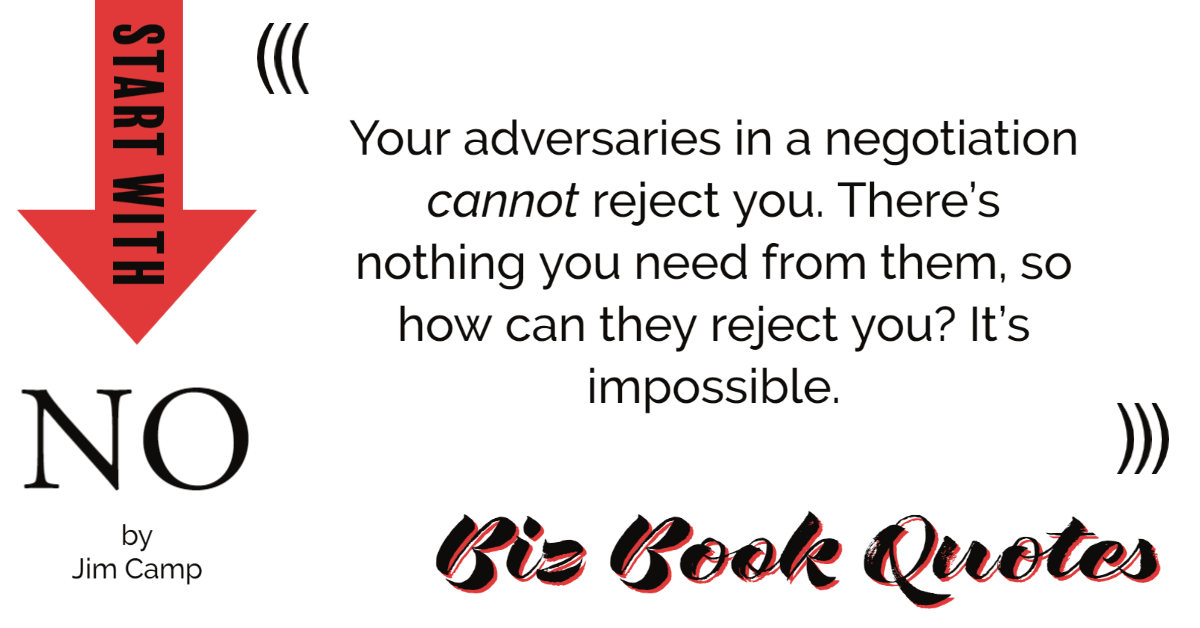 |
Your adversaries in a negotiation cannot reject you. There’s nothing you need from them, so how can they reject you? It’s impossible.
|
30 |
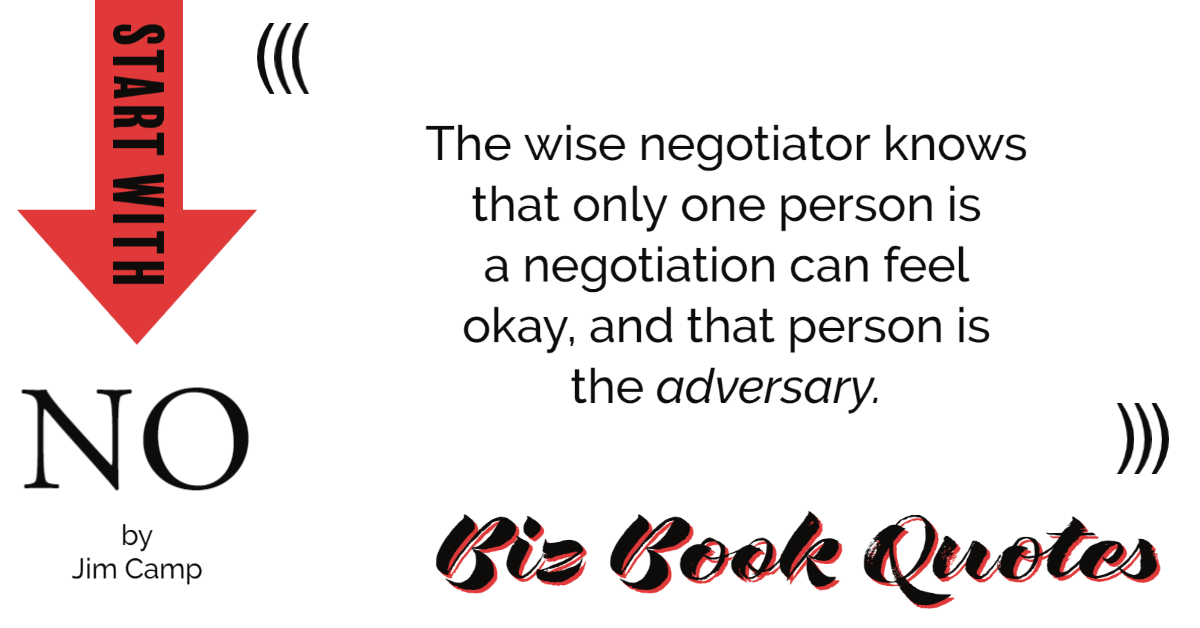 |
The wise negotiator knows that only one person is a negotiation can feel okay, and that person is the adversary.
|
37 |
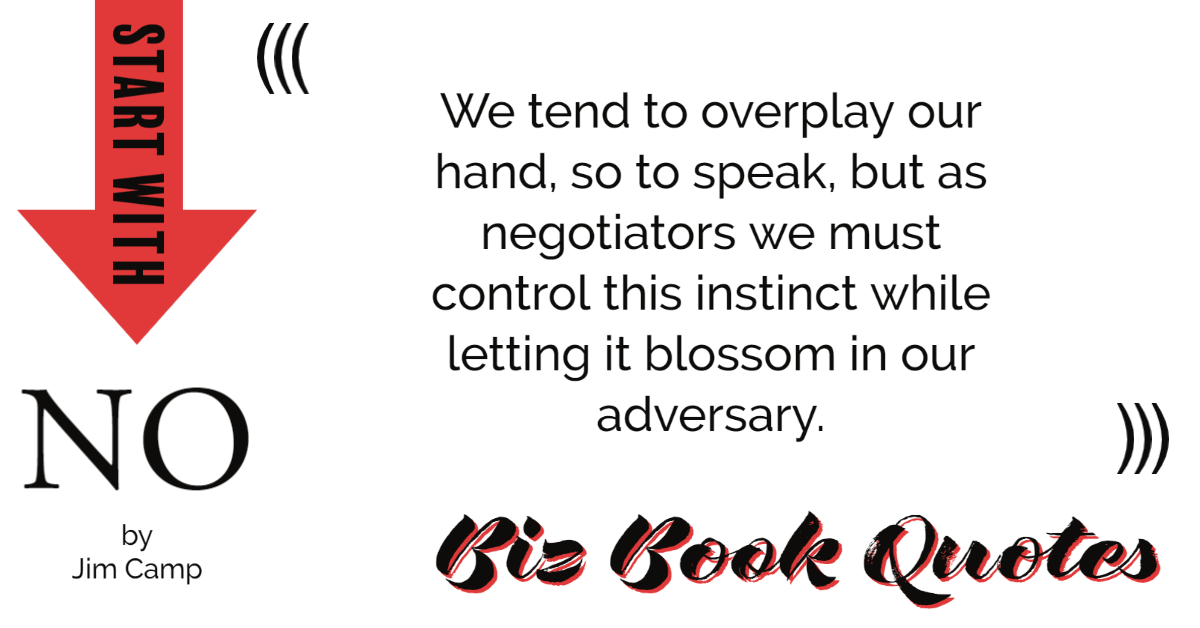 |
We tend to overplay our hand, so to speak, but as negotiators we must control this instinct while letting it blossom in our adversary.
|
38 |
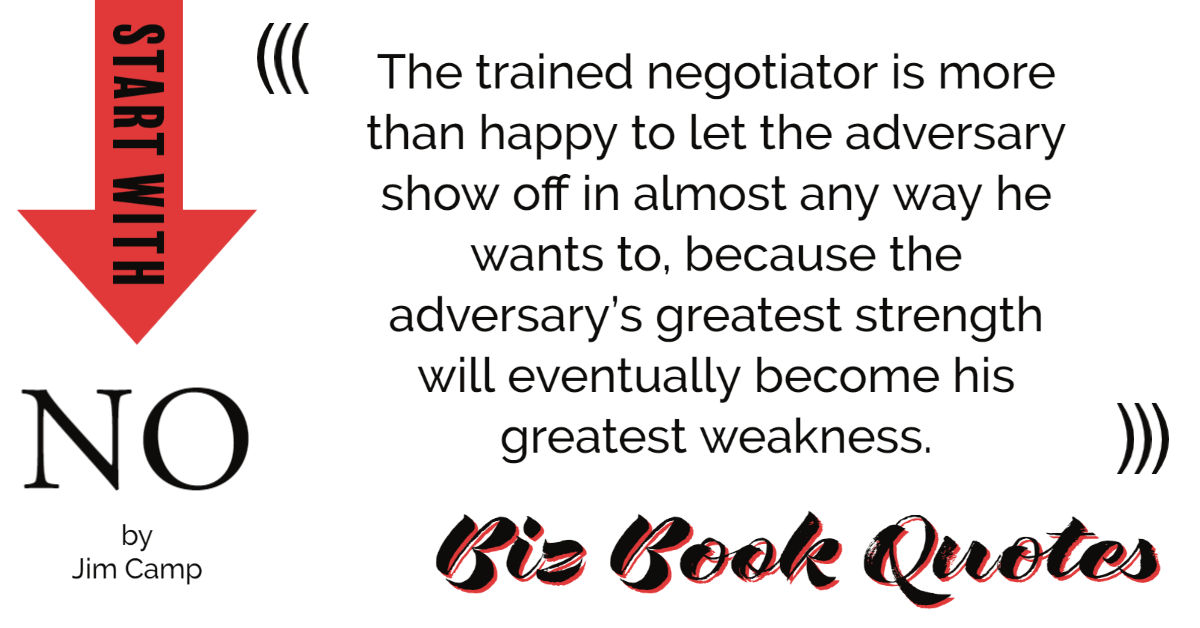 |
The trained negotiator is more than happy to let the adversary show off in almost any way he wants to, because the adversary’s greatest strength will eventually become his greatest weakness.
|
39 |
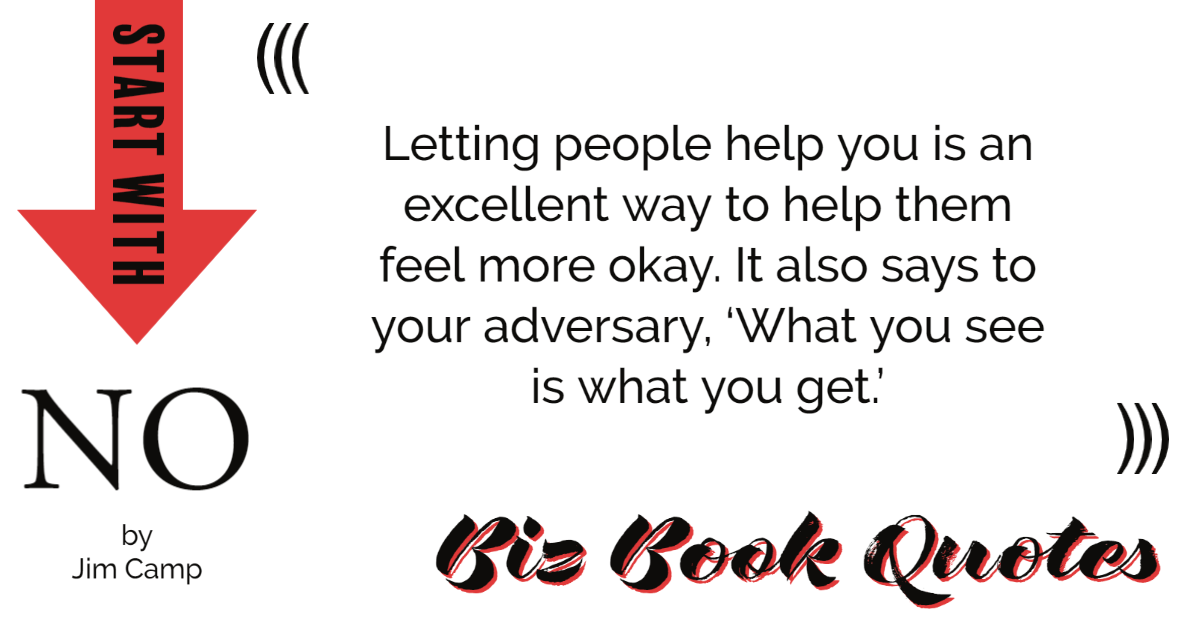 |
Letting people help you is an excellent way to help them feel more okay. It also says to your adversary, ‘What you see is what you get.’
|
40 |
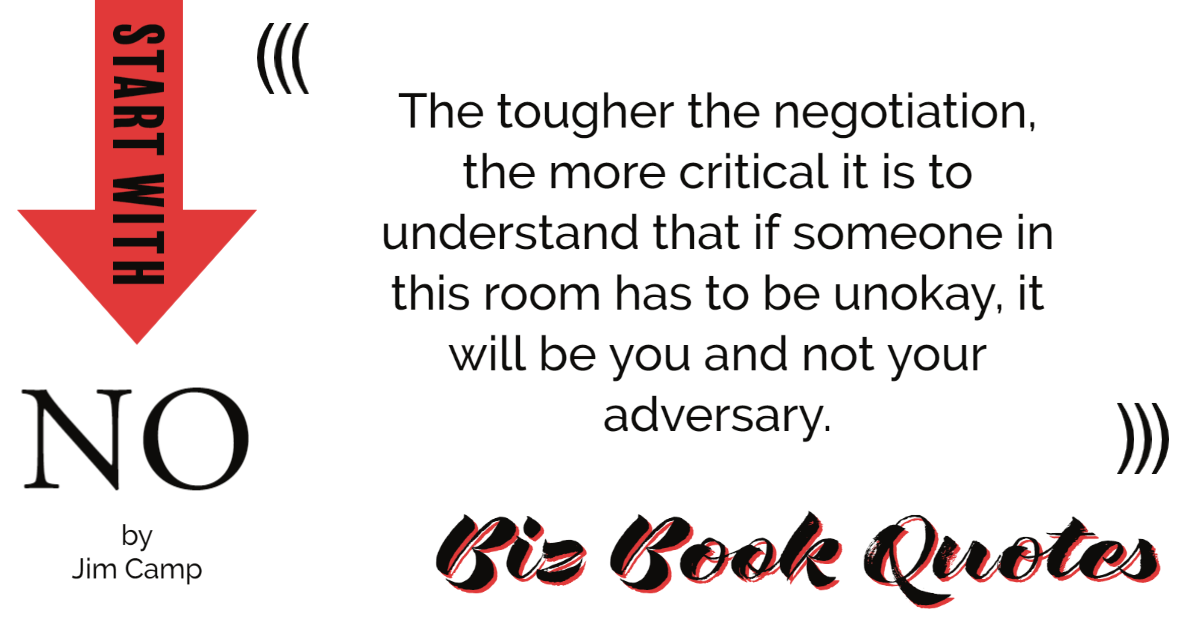 |
The tougher the negotiation, the more critical it is to understand that if someone in this room has to be unokay, it will be you and not your adversary.
|
41 |
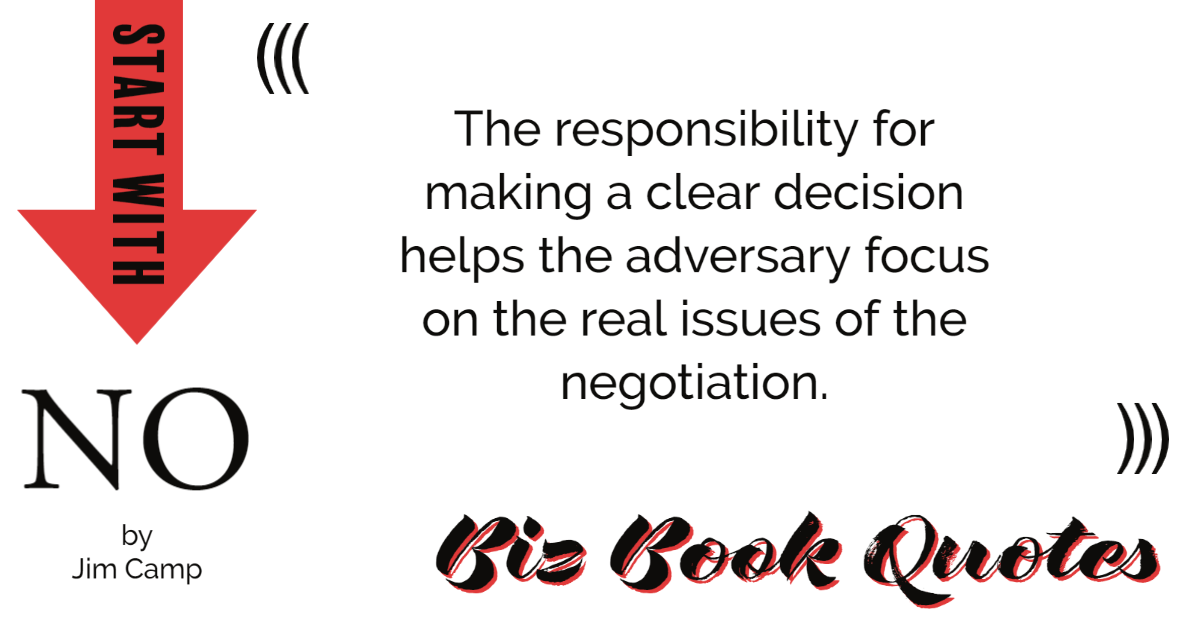 |
The responsibility for making a clear decision helps the adversary focus on the real issues of the negotiation.
|
45 |
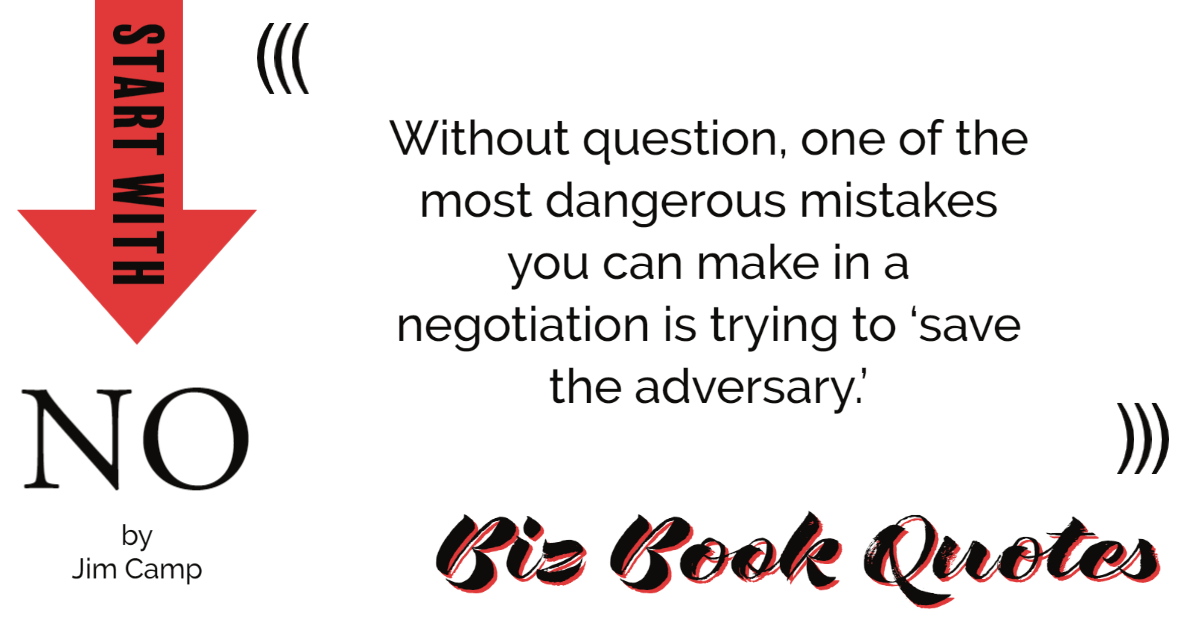 |
Without question, one of the most dangerous mistakes you can make in a negotiation is trying to ‘save the adversary.’
|
59 |
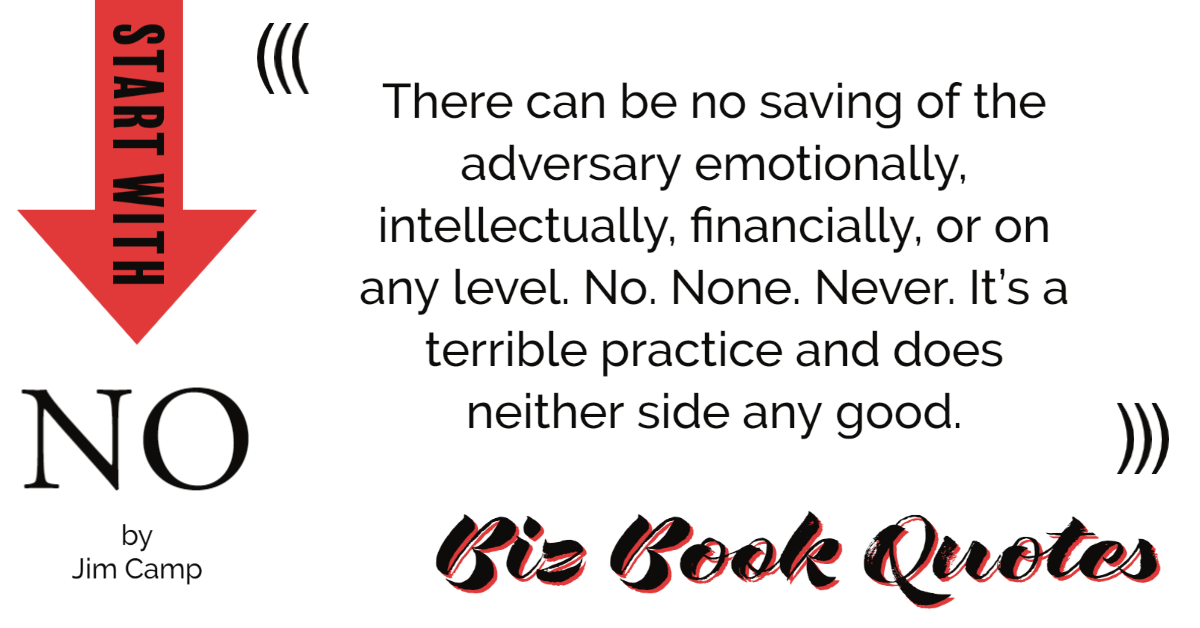 |
There can be no saving of the adversary emotionally, intellectually, financially, or on any level. No. None. Never. It’s a terrible practice and does neither side any good.
|
59 |
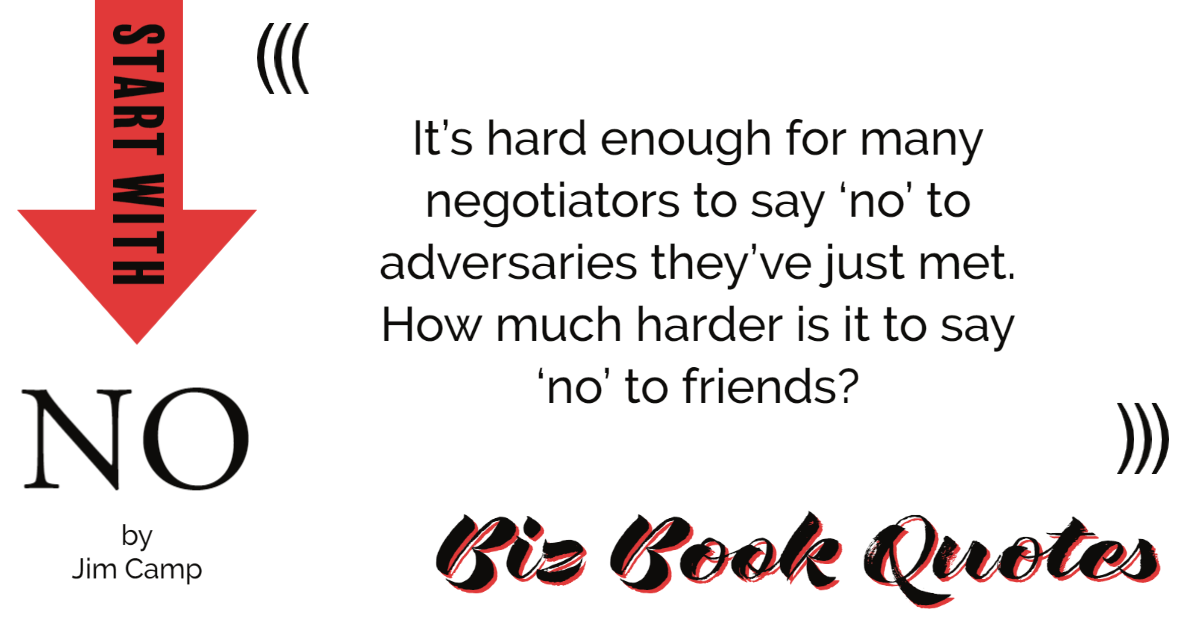 |
It’s hard enough for many negotiators to say ‘no’ to adversaries they’ve just met. How much harder is it to say ‘no’ to friends?
|
62 |